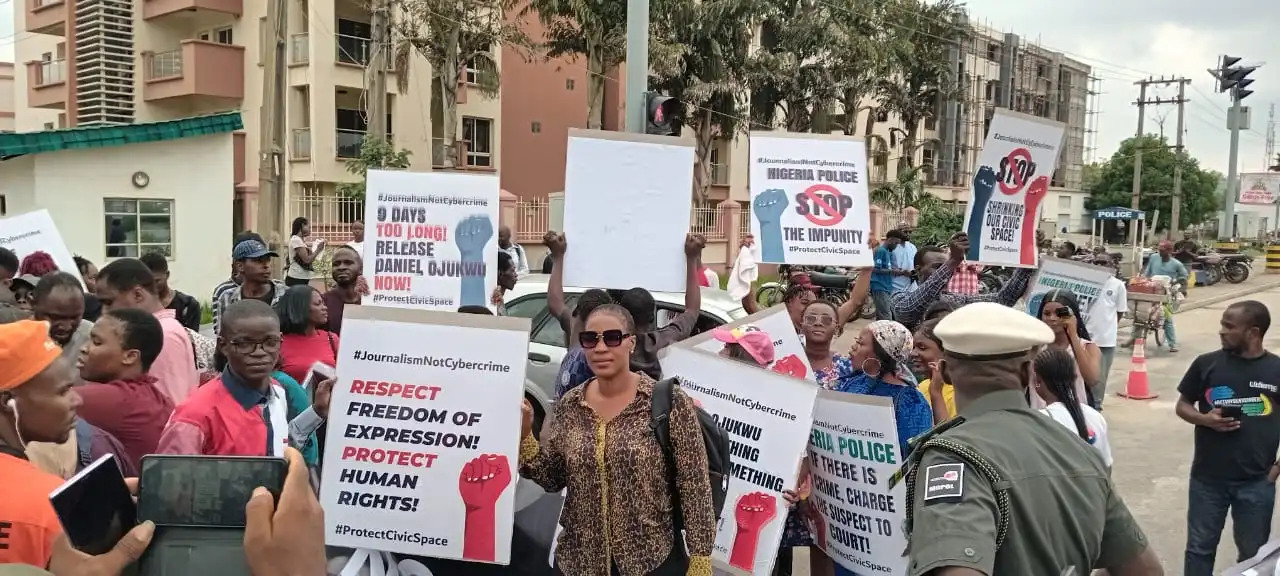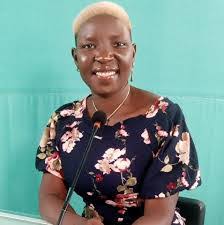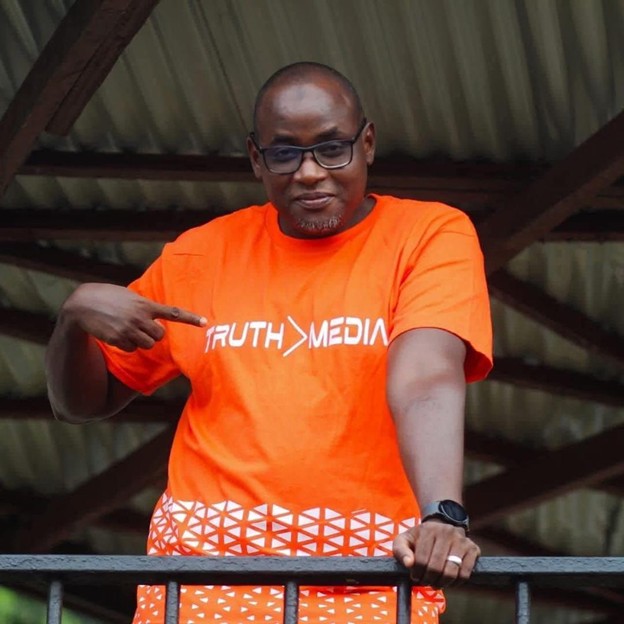The Media Foundation for West Africa (MFWA) is alarmed at the continuing threats and attacks against journalists in Nigeria, despite several calls to address dangerous trends that undermines press freedom and freedom of expression.
On May 29, 2024, Emmanuel Nwazue, a journalist with Afia TV, was assaulted by security guards attached to a branch of First City Monument Bank (FCMB) in Umuahia, Abia State. Nwazue was covering the ongoing strike by labour unions when the guards attacked him and damaged his equipment.
On May 27, 2024, Precious Eze, publisher of the online newspaper News Platform, was arrested by the Nigeria Police Force at his home in Gbagada, Lagos. Eze’s arrest followed a complaint by a prominent businessman and politician. He was detained for more than a week, during which his colleagues struggled to secure his release. Despite a court ruling on May 30, dismissing the charges against him, Eze was re-arraigned on May 31.
The incident sparked outraged in the media landscape as many condemned the misuse of the Cybercrime Act to target journalists. Senior Advocate of Nigeria, Chief Yomi Aliyu, urged Eze’s media house to seek the intervention of the Attorney General of the Federation, Mr. Lateef Fagbemi (SAN), to address this abuse of power.
On May 7, 2024, the President of the Nigerian Senate, Senator Godswill Akpabio, barred over ten television stations and photojournalists from covering Senate proceedings, without explanation. Media houses including Galaxy TV, Ben TV, and Liberty were among those excluded. This decision was made despite ongoing dialogue between the National Assembly Press Corps and Senate officials regarding media coverage.
On May 8, 2024, Mr. Yawale Adamu of WikkiTimes reported receiving threats from Mr. Mustapha Abdurrahman, an aide to a Bauchi State lawmaker. Adamu had published a report on the politicisation of aid distribution by the North East Development Commission (NEDC). Abdurrahman threatened Adamu with severe consequences if he did not retract the story, warning that they had detailed information on WikkiTimes’ reporters and would act against them. Abdurrahman further alleged that the story was a political attack against his principal, asserting that the lawmaker would ensure Adamu faced repercussions.
Similarly, Ms. Victoria Ojeme, a reporter with Vanguard newspaper, has reported ongoing threats to her life since February 2024 after reporting on a violent communal crisis in her hometown of Benue State. Following her coverage of clashes between the Mbarvu and Mbasombo communities in Gwer East Local Government Area, which resulted in numerous fatalities, Ojeme received threatening messages from unknown individuals. On May 8, 2024, she reported that an anonymous person contacted her, stating that they knew her residence in Abuja and intended to harm her. Ojeme has since sought police protection, expressing fear for her safety.
On April 20, 2024, Ondo State Commissioner for Youths and Sports Development, Mr. Saka Yusuf-Ogunleye, assaulted Tayo Ikujuni, a senior journalist with the News Agency of Nigeria (NAN). The incident occurred during the All Progressives Congress’ (APC) governorship primary elections at Ward 9, Eji-Oba High School, Oba-Ile, Akure North Local Council. Ikujuni was questioning the arrival time of election materials when Yusuf-Ogunleye responded aggressively, seizing and damaging Ikujuni’s phone. Eyewitnesses and security personnel intervened to prevent further violence.
Earlier this year, the MFWA published a series of articles condemning the numerous incidents of violence, intimidation, and harassment against journalists and critical voices in Nigeria. These recent incidents, just like those previously reported by the MFWA, are clear violations of press freedom and must not be tolerated.
According to MFWA’s monitoring reports over the past eight months, Nigeria has seen the highest number of press freedom and freedom of expression violations. The country recorded 13 out of 39 violations reported in West Africa in the first quarter (January-March) of 2024, a figure which is higher than that of the last quarter (October-December) of 2023, i.e., 12 out of 39 violations.
The MFWA equally expressed sadness at the continuing arrests of journalists under the cybercrime law. Media publications exposing abuse of power, even if not entirely accurate, cannot be classified as cybercrimes simply because they are published online. Victims, like Precious Eze, were arrested on the orders of public officials and detained beyond statutory periods without court warrants, and treated as criminals under the cybercrime law. Others such as Nwazue, Ikujuni, Ojeme, and Adamu have been harassed, assaulted or faced death threats.
We strongly condemn the multifarious abuses against media professionals and urge the Nigerian authorities to call the police and public officials to order, in respect of the misuse of the cybercrime law against journalists. More importantly, we call on the Nigerian authorities themselves to put an end to the harassment of journalists and uphold principles of justice and press freedom.
We extend our support to all journalists and media professionals who are harassed and abused for carrying out their duties, and stand with the international community, press freedom advocates, and civil society in condemning these practices.






